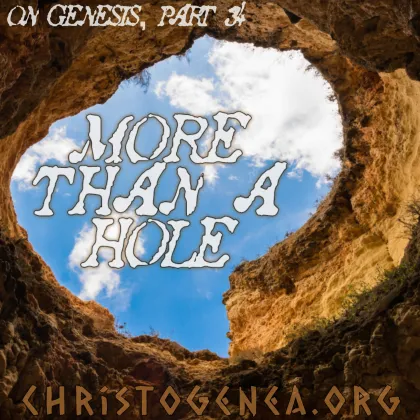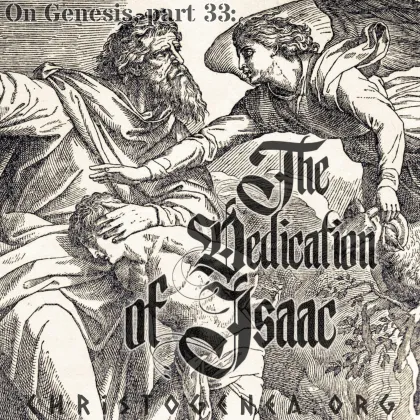On Genesis, Part 34: More Than a Hole

On Genesis, Part 34: More Than a Hole
In the last presentation in our commentary on Genesis, which was titled The Dedication of Isaac, we had described the sacrifice of Isaac in that manner because it was not a sacrifice at all. Rather, it was a dedication, and Yahweh God never truly intended to have Isaac sacrificed in the first place, because He had already made promises to Sarah concerning the fate of the son which she had born when she was ninety years of age. Therefore Abraham, confident in the fact that Yahweh would keep his promises, seemed to have been relatively untroubled by the demand that he sacrifice his son, and proceeded to fulfill that demand without any qualms or objections. Doing that, he acted with absolute faith and a degree of obedience which throughout history has only been surpassed in the sacrifice of Christ Himself. The act of sacrifice for the reasons which Abraham was willing to comply with it, and for the reasons for which Christ had submitted to it, is in itself a profession in the eternal existence of the Adamic spirit and the ability of Yahweh God to resurrect that spirit from beyond death.
In the ancient world, fathers had property rights over their wives and their children, and the authority to determine their fates so long as they lived. In ancient Rome, these rights were codified into law as the Patria potestas, or Paternal power, wherein only the family patriarch had any rights in private law, only he had lawfully held all of the family property regardless of who in the family had earned it, and he even had the power of life and death over his children. Furthermore, he had that authority until he died, since there was no concept of an age of majority, or adulthood, as there is in Western society today, and while fathers could grant emancipation to a son, their daughters were typically consigned to the control of another man through marriage. If the daughter remained unmarried, when her father died she fell under the authority of her eldest brother. [1] So Abraham had every right to consign his son to his God, and in accordance with ancient custom, when a man placed something on an altar and dedicated it to a god, the object – or even a person presented at the altar – became the property of that god. When Abraham placed Isaac on the altar and dedicated him to Yahweh, he essentially relinquished to Yahweh his paternal rights over his son. That is also an act of sacrifice, as Isaac was dedicated by Abraham to the service of Yahweh, at the explicit request of Yahweh. A father had a right to do this in the ancient world, just as he had a right to expose an infant, if he so chose to do such a horrible thing, or to place a son or daughter up for adoption, or to sell one into slavery.








 Please click here for our mailing list sign-up page.
Please click here for our mailing list sign-up page.








Recent comments